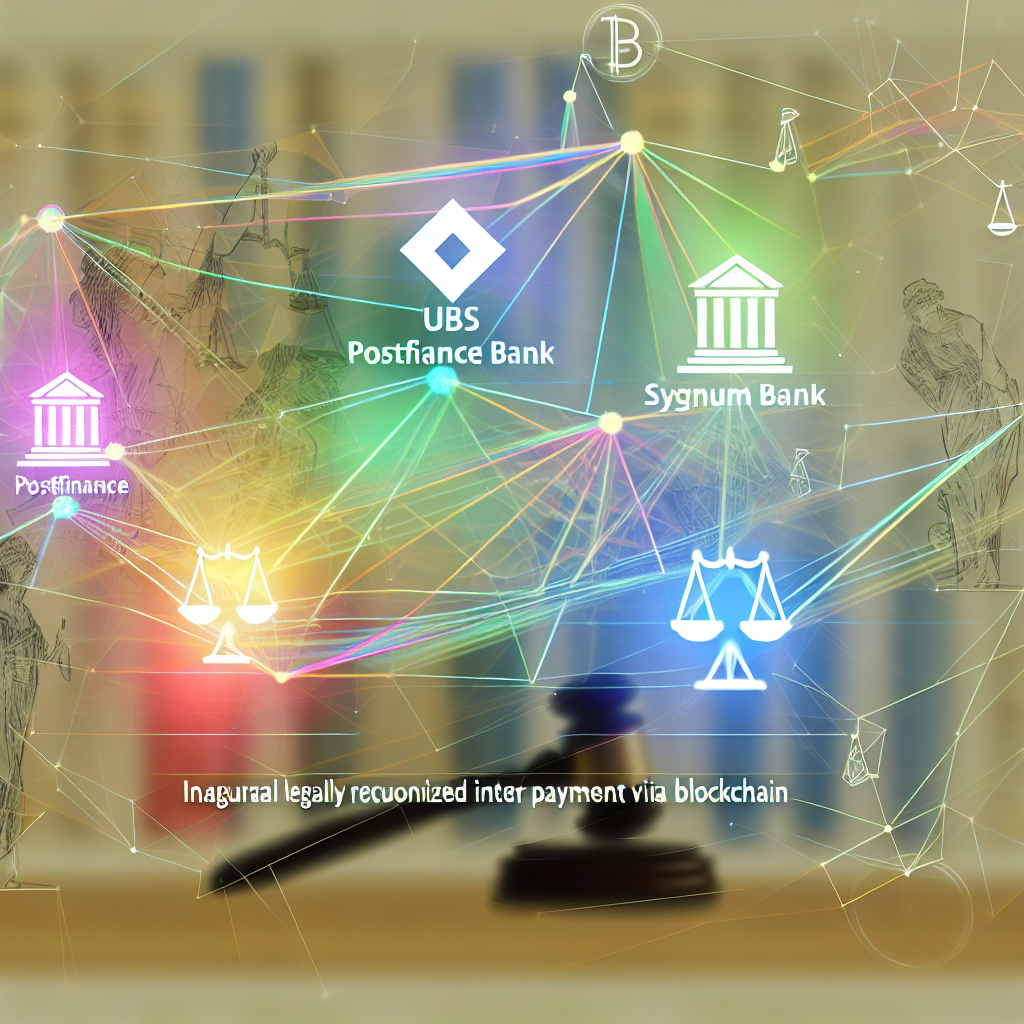
UBS, PostFinance, and Sygnum Bank from Switzerland have successfully conducted the first legally binding interbank payment utilizing tokenized deposits on a public blockchain.
Summary
- The transaction employed tokenized deposits to facilitate fund transfers among the participating banks, with the settlement completed on-chain.
- This achievement builds upon earlier blockchain initiatives, such as JPMorgan’s June 2025 JPMD proof of concept, but advances by enabling interoperability between banks.
UBS, PostFinance, Sygnum Bank finalize groundbreaking interbank payment via blockchain
Swiss banking institutions UBS, Sygnum Bank, and PostFinance have conducted the first legally binding payment between banks using a public blockchain, as reported by the Swiss Bankers Association on Tuesday. This payment was part of a feasibility study, utilizing tokenized deposits, which are bank deposits enabled for use on the blockchain. Clients transferred these deposit tokens, which represent actual bank deposits, among the participating banks, with on-chain settlement.
Thomas Frei, head of product innovation at Sygnum Bank, remarked that this experiment effectively establishes “a new form of payments on the blockchain, serving as an alternative to stablecoins.”
Nevertheless, he emphasized that further development is essential before broad implementation, including additional testing and enhancements of the infrastructure to ensure scalability and compliance with regulations.
This advancement builds on prior endeavors within the financial sector to incorporate blockchain technology into banking frameworks. In June, for instance, JPMorgan introduced a proof of concept for JPMD, a USD deposit token, on Coinbase’s Base blockchain.
While JPMorgan’s initiative allowed institutional clients to transfer funds quickly and securely on-chain, the transaction by Swiss banks takes it a step further by facilitating cross-bank utilization of deposit tokens, showcasing wider interoperability.
“Our tokenized deposits can be deployed across various banks, a capability that was previously unavailable,” noted Frei.

